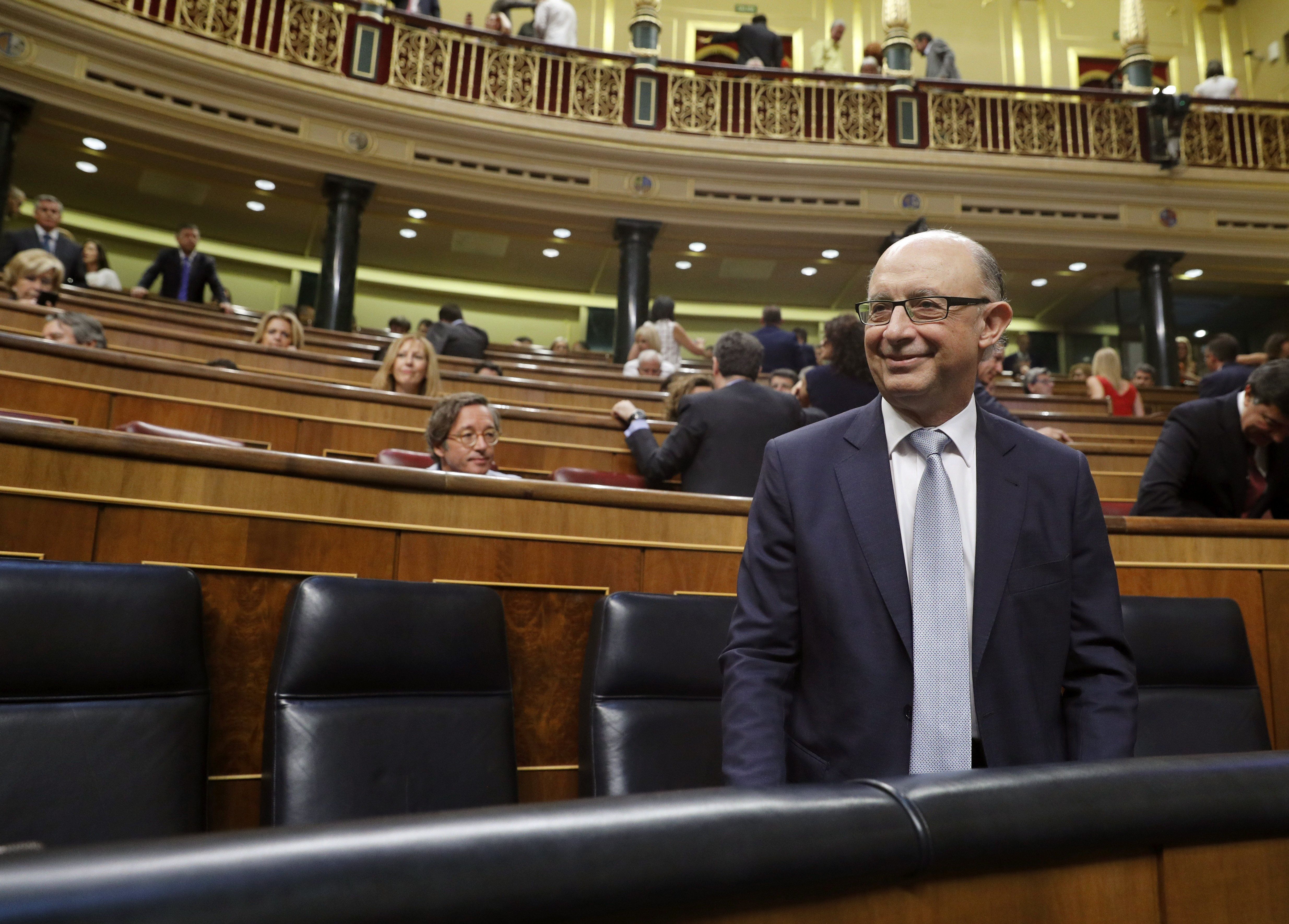A new slap in the face for Spain from European justice - this time because of a "highly punitive" and "illegal" taxation law. The European Court of Justice (ECJ) has this Thursday declared illegal the Spanish legislation that obliges taxpayers to declare assets they hold abroad using the so-called "Model 720" form, ruling that the fines imposed under the law are "disproportionate" and undermine the free movement of capital in the European Union. The declaration of assets abroad was a complement to the tax amnesty approved by the Mariano Rajoy's Popular Party government in 2012, when Cristóbal Montoro was minister of finance, a rule that was appealed to the European courts on 2019 by the European Commission after Spain's refusal to amend the regulations. The court says it is "against the law."
The ECJ has thus backed the position of the European Commission and states that the Spanish law imposes "disproportionate" fines on those who do not declare, or make late declarations, of their assets abroad, including "real estate, bank accounts, securities, assets or rights representing share capital, own funds or assets of any type of entity, or life and disability insurance". According to the law now considered illegal, tax residents of Spain who do not declare - or declare incorrectly or late - the assets they hold abroad are liable to pay fines of a "highly punitive" level in their assets, even when they were acquired at a time period which would normally mean their obligation has expired under the statute of limitations.
The very high fines which may apply - "more than 100% of that taxpayer’s overseas assets or rights" in some cases, gave it "a highly punitive nature", says the court.
Violates legal certainty
"National legislation requiring Spanish tax residents to declare their overseas assets or rights is contrary to EU law," the press statement issued by the ECJ said on Thursday in its title. It states that "the restrictions on the free movement of capital that it imposes are disproportionate" because, it explains, they allow the tax authorities to proceed without time limits to the regularization of the tax due on the value of undeclared (or incorrectly declared) foreign assets. It also concludes that "the measure adopted by the Spanish legislature, in addition to including an effect of non-applicability of any limitation period, also allows the tax authorities to call into question a limitation period which had already expired vis-à-vis the taxpayer, which undermines the fundamental requirement of legal certainty."
In its judgment, the court ruled that Spain had breached its obligations regarding the principle of free movement of capital because the obligation to file the Model 720 form and the penalties arising from non-compliance - which has no equivalent in the case of assets or rights located in Spain - establish a difference in treatment between residents in Spain, depending on the location of their assets. "This obligation is likely to deter, prevent or restrict the opportunities for residents of that Member State to invest in other Member States", and thus "constitutes a restriction on the free movement of capital." The judges acknowledge that while the controversial legislation could be justified to ensure the effectiveness of tax controls and combat tax fraud and evasion, it "goes beyond what is necessary" to achieve those goals.
Tax agency now owes €1.7 million to Pujols
One immediate effect of the ECJ's ruling against Spain: the Treasury will have to return 1.7 million euros to the Pujol Ferrusola family, according to their advisers. The family of the former Catalan president Jordi Pujol declared that they had undeclared money in Andorra and made a supplementary declaration (using the Model 720), on July 10th, 2014, when a photo of their account in the BPA bank was published, illegally obtained by the so-called "patriotic police" of the PP government, as some of its authors have recently confessed. The family paid over around half of the money they had: about 1,700,000 euros. Defence lawyers for the Pujol Ferrusola family, awaiting trial on corruption charges relating to their Andorran funds, say that this payment was made as a precaution, but that there was no irregularity, as it was money they had had in Andorra for more than 20 years.
Main image: The former Spanish finance minister, Cristóbal Montoro / Efe

